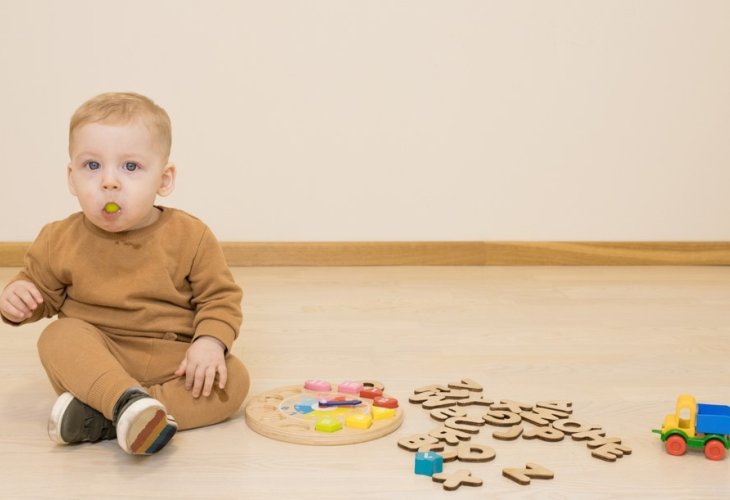Personal Stories
The Blessing That Saved a Toddler's Life
She tucked her son into bed, went about her evening—until a soft, unexpected voice from the kitchen made her pause...
 (Photo: shutterstock)
(Photo: shutterstock)One evening, a mother tucked her sweet two-year-old son into bed and headed to her usual tasks. But a short while later, something unexpected happened. She heard a soft, familiar voice from the kitchen saying, “Shehakol Nihyeh Bidvaro”—the blessing we say before eating or drinking.
Curious, she followed the voice and found her little boy standing in the kitchen, holding a cup of acetaminophen pills. Her heart pounded as she gently took the pills from his hand—he hadn’t swallowed any yet. It was that small blessing, taught by his father, that alerted her to the danger and likely saved his life.
In their home, medicine is stored high with a safety lock. Yet that night, the blessing—acknowledging Hashem’s power—became the true safeguard.
Why Do We Say So Many Blessings?
Have you ever wondered why Judaism asks us to stop and say a blessing so often? Before we eat or drink, when we smell something lovely, after using the bathroom, when we hear thunder, see lightning, or even pass a place where a miracle happened. It might feel overwhelming—so many little prayers!
Here’s the heart of it: without gratitude, our hearts grow cold. Rabbi Yaron Ashkenazi calls ungratefulness one of the hardest traps we can fall into. When we take good things for granted, we start assuming everything is “ours” and lose the ability to truly appreciate life’s gifts.
That’s why the Torah gently teaches us to say thank you—all day long. Every time we bless, we remind ourselves that everything comes from Hashem. A slice of bread with chocolate spread, a hot cup of coffee, the fresh scent of rosemary in the kitchen—even the simple fact that our body works the way it should. Each blessing is our way of pausing, looking around, and whispering, “Thank You.”
When we do this sincerely, from the heart, two beautiful things happen:
Our souls learn to see goodness. We train ourselves to notice blessings instead of overlooking them.
We grow more connected to Hashem. Every bracha is like a tiny chat with our Creator—another chance to draw close and say, “I see You, and I’m grateful.”
Our Sages took it even further. They taught that enjoying the world without saying a blessing is like “borrowing” from Hashem without permission. By pausing to bless, we acknowledge that everything belongs to Him—and He gladly lets us enjoy it.
There’s another gift in this practice: self-control. Saying a blessing before we eat or drink teaches our hearts to slow down, to think, and to choose gratitude over impulse.
And if you explore the deeper, mystical teachings, you learn that even the food on our table can carry a spark of soul that needs lifting. When we bless our food, we help release and perfect that spark—completing a tiny part of creation’s journey back to Hashem.
So yes, the blessings may seem many. But each one is a moment to stop, say “thank you,” and remember that we’re living in a world filled with kindness, miracles, and the touch of the Divine.

